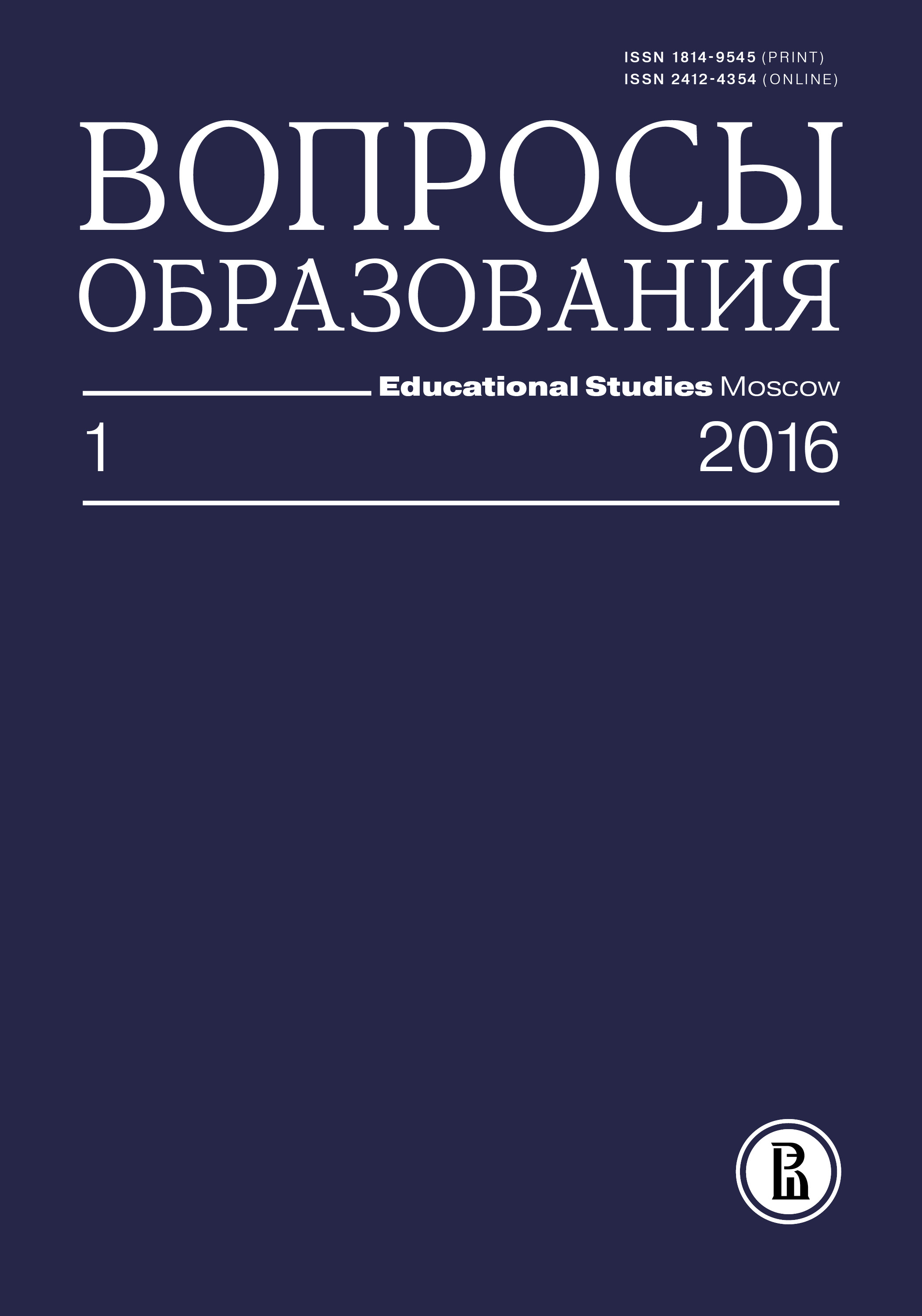Плагиат и списывание в российских вузах: роль образовательной среды и индивидуальных характеристик студента
Аннотация
Целью исследования было выяснить, в какой степени плагиат и списывание как практики недобросовестного учебного поведения студентов связаны с индивидуальными характеристиками учащихся (например, с их вовлеченностью в учебную и научно-исследовательскую деятельность) и особенностями образовательной среды. Эмпирической основой исследования послужили результаты опроса преподавателей и студентов высших учебных заведений, проведенного в рамках Мониторинга экономики образования 2014 г. Влияние факторов оценивалось с помощью двух бинарных логистических регрессий с результирующими переменными, характеризующими наличие/отсутствие опыта списывания и некорректного заимствования (плагиата). Показано, что на рассматриваемые практики академического мошенничества не влияет существование в вузе формальной или неформальной практики проверки студенческих работ на наличие плагиата. Более существенными с точки зрения предотвращения недобросовестных учебных практик характеристиками образовательной среды оказались демонстрируемое преподавателями нетерпимое отношение к списыванию, их готовность применить строгие меры наказания за него. Факторами, снижающими вероятность академического мошенничества, являются высокая интенсивность подготовки к занятиям, уверенность в связи будущей профессии с получаемой специальностью, ориентация при выборе вуза и специальности на качество образования, а не на его доступность.








